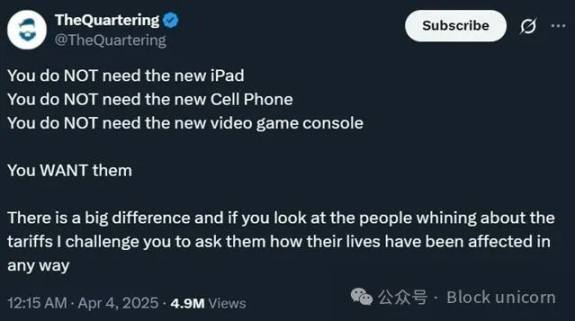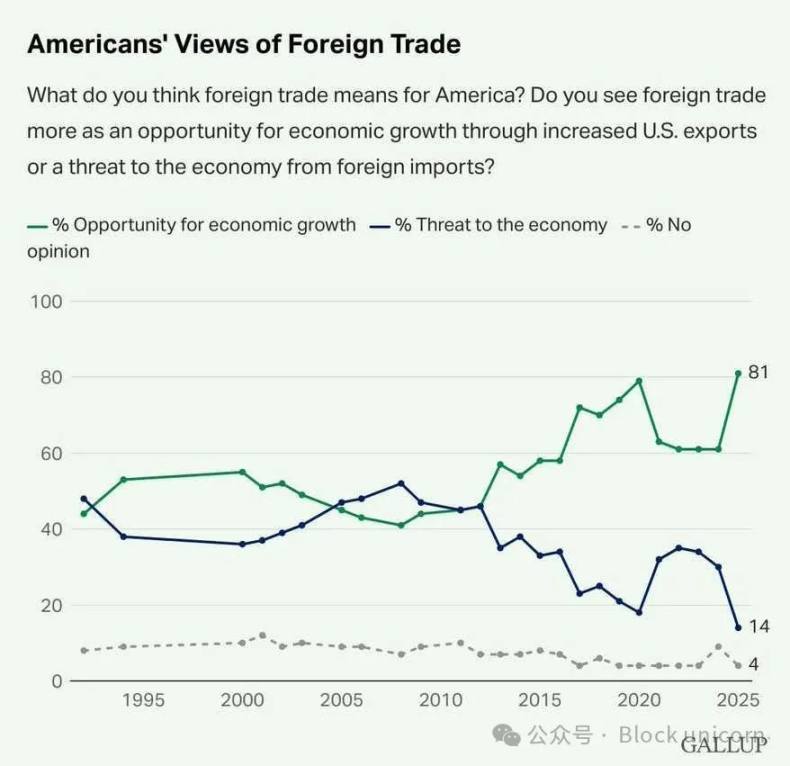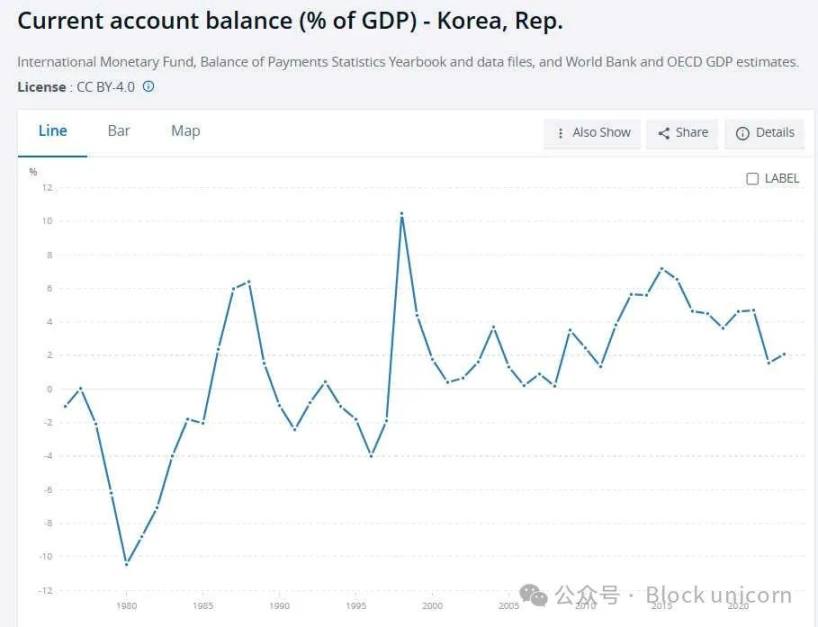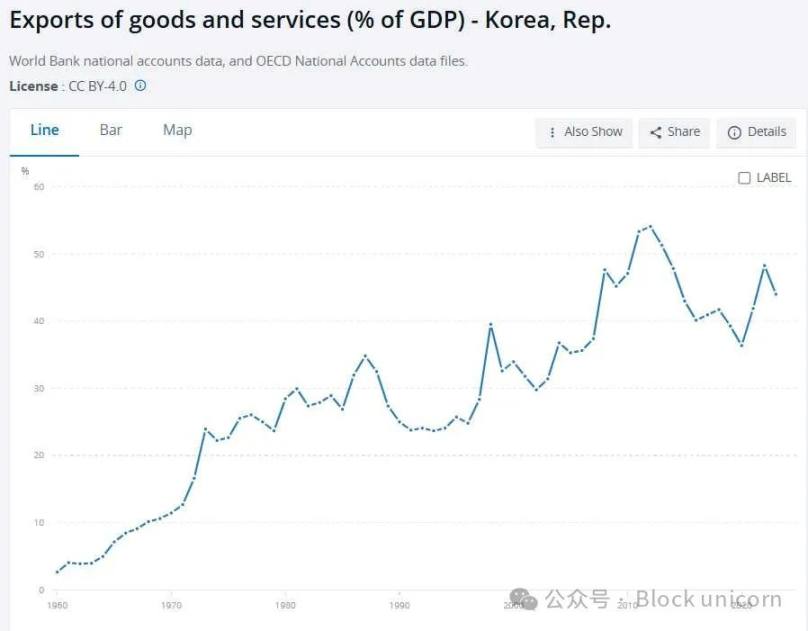I actually do not believe you can defeat Trump's tariff policy through rational debate or explanation of economic theory. I mean, how can you argue with something like this?

I have accepted an idea that Americans will only generally realize that broad tariffs are bad through experiencing the negative consequences of broad tariffs firsthand - touching the so-called hot stove. Fortunately, I think Americans may wake up soon:

But anyway, this is an economics blog, so although I don't expect much political payoff, I want to explain why trade deficits won't make a country poor (though this doesn't mean they don't have problems).
Trump's Incorrect View on Trade Deficit
Trump and his advisors and followers believe that trade deficits mean the US is being "extorted" by foreign countries. As I explained in yesterday's post, this is why Trump sets tariffs at levels he believes can eliminate the US trade deficit with each country.
Trump's view on trade deficits is based on two fundamental misunderstandings. The first is a simple accounting error. Trump's advisors looked at the GDP formula and noticed that imports are subtracted from GDP. They don't understand this is because imports are also added to consumption and investment, so they must ultimately be subtracted to remove them from the figure. The fact is, imports have no impact on GDP.
Trump's second misunderstanding is based on the idea that imports would be replaced 1:1 by domestic production - that is, if you prevent the US from importing a washing machine, a US company will produce one more washing machine. This is certainly a possible outcome, but not the only one. US consumers might simply use one less washing machine, which would make everyone poorer.
In fact, Trump and his team may not even realize these are two different misunderstandings. They may believe their incorrect accounting belief (that imports reduce GDP) naturally stems from their incorrect belief about import substitution. These two errors reinforce each other.
In summary, because Trump misunderstands trade deficits in these two ways, he believes that when the US has a trade deficit with a country, that country is extorting them. He believes imports force the US to reduce production, thereby lowering US GDP - essentially stealing US production. Therefore, he sees trade deficits as an indicator of how much has been stolen from the US.
But this is not how trade deficits work at all.
Trade Deficit is Like Buying Things with a Credit Card
Suppose you import a washing machine from a Chinese person named Ruimin. Why would Ruimin give you that washing machine? There's no free lunch in the world. Basically, you can pay for that washing machine in two ways. The first way is to give Ruimin what he wants - like 50 interesting books (assuming Ruimin is known for loving to read). The second way is to write Ruimin an IOU.
The first scenario is called trade balance. You get a washing machine, Ruimin gets 50 books. No trade deficit or surplus.
The other scenario is trade imbalance. In this case, instead of giving Ruimin 50 books, you give him a US government bond. A bond is an IOU. In this scenario, you've contributed to the US-China trade deficit. A real good or service - the washing machine - has been shipped from China to the US, with only a piece of paper (or actually, a number in an electronic spreadsheet) in return.
When you hear economists discuss trade, you might hear them talk about "current account" and "capital account". The current account is basically just the net flow of real goods and services, while the capital account is basically just the net flow of IOUs. If you give Ruimin an IOU for the washing machine, this means you've contributed to the US current account deficit while also contributing to its capital account surplus. These two things just mean "paying foreigners with IOUs".
Now you can see why trade deficits are like buying things with a credit card. When I buy a washing machine from Target using a credit card, I write an IOU, and I receive a tangible item in return. Buying a washing machine from Target with a credit card means Target has extorted you? No. Will buying a washing machine from Target with a credit card make you poor? No. You now have less money but more things. Similarly, a trade deficit means the US has less money but more things. This does not mean the US has become poor or been extorted by foreigners.Cases Where Trade Deficits Might Be Beneficial
Asking whether a trade deficit is good or bad is like asking whether buying things with borrowed money is good or bad. The answer is clearly "it depends on whether the purchased items are worth it". One thing to remember is that not all purchases are for consumption - many are actually productive investments. If a US factory buys a CNC machine from Japan for $100,000, and the Japanese tool manufacturer simply deposits this money into US Treasury bonds, this increases the US trade deficit. But if this US factory uses this tool to manufacture and sell auto parts worth $500,000, it has profited - and so has the US. This is what South Korea did during its rapid industrialization. Around 1980 and early 1990s, South Korea experienced trade deficits:


Well, we're not discussing those historical cases, are we? We're talking about the trade deficits that the United States has experienced over the past 25 years, primarily with China, but also including many other countries. These trade deficits are mainly due to the US borrowing to consume, rather than investing. The question is whether these deficits have caused the US to lose its manufacturing sector.
The answer, at least for China, is "definitely". The famous research by Autor et al. (2013) found that "import competition from China explains one-quarter of the total decline in US manufacturing employment during the same period from 1990 to 2007." Bloom et al. (2024) discovered that Chinese import competition led to a massive shift of jobs from manufacturing to services on the West Coast and in large cities, while in the Midwest, it primarily caused wage declines and unemployment. Acemoglu et al. (2014) wrote:
In this paper, we explore the impact of the rapid rise of Chinese import competition on slow US employment growth. We find that the increase in US imports from China, which accelerated after 2000, is the primary reason for the recent reduction in US manufacturing jobs, and through input-output linkages and other general equilibrium effects, it appears to significantly suppress overall US employment growth... Our core estimates indicate a net job loss of 2 to 2.4 million between 1999 and 2011 due to the rise of Chinese import competition. [Emphasis added by me]
You can roughly see this by examining the original data. Until 2001, when China joined the WTO and began exporting large quantities of cheap goods to the US, US manufacturing employment had been doing quite well for many years (although its percentage of the total was declining). In the 21st century - the decade of surging Chinese imports - it was like falling off a cliff:
It's worth noting that trade deficits themselves did not cause these job losses. Even if trade with China were balanced, Chinese import competition might cause some US manufacturing workers to lose their jobs because A) some US exports might be services rather than manufactured goods, and B) the US might export more capital-intensive goods, thus no longer producing labor-intensive products that China was good at producing in the 2000s.
However, the US trade deficit with China is indeed massive and has led to a severe industrial decline. Ongoing trade deficits with China may hinder US reindustrialization, on one hand due to import competition, and on the other hand because China is pushing US companies out of export markets.
Therefore, if you believe the importance of manufacturing extends beyond its GDP contribution (like I do), then the trade deficit with China might be an important issue that needs to be addressed.
But this doesn't mean Trump's tariffs are the correct way to solve it! I know I'm repeating what I've written in many other posts, but this is indeed worth repeating. First, Trump's tariffs are weakening US manufacturers by raising the prices of imported components - which is why US auto and steel workers are now being laid off, and why manufacturing activity and confidence indicators are declining. Second, Trump's tariffs will ultimately reduce US exports, not just imports, both through exchange rate changes and through retaliation by other countries. This will harm US manufacturing.
Imposing tariffs on China could be part of a larger strategy to improve US manufacturing competitiveness. But broad tariffs on all US trading partners, like Trump just introduced, are likely to accelerate US deindustrialization - even if they also reduce trade deficits. Ultimately, what matters for the US is not reducing imports, but increasing exports. Trump's tariffs will only harm this goal.







